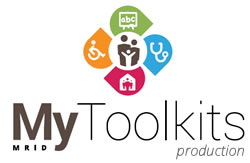As with SchoolKit Clinics, planning and preparation are essential to the success of a SchoolKit Transition Clinic.
Because of the complexities involved in managing the transition to post-school life this part of the process can take quite some time. Long lead times should be built in wherever possible with, ideally, the first clinic occurring when the young person is in year 11.
Again, the young person’s school will play a lead role in facilitating arrangements. At the beginning of the school year young people who are nearing the end of their schooling, and their families, are invited to attend a transition clinic at the school. The nature and purpose of this clinic is explained, new and updated information is requested, and consent is sought for the clinic to go ahead.
Information is requested early so that all the appropriate health and support services can be identified for possible involvement. A paediatric representative and an adult physician will almost always be involved. Beyond that a clinic may include a psychiatrist, a disability services representative, a physiotherapist, an occupational health therapist, and so on, as required. A transition care coordinator is ideally part of the health team. In New South Wales they may be available through either the Sydney Children’s Hospital Network transition care program ‘Trapeze’, or the Agency for Clinical Innovation Transition Care Network. With so many people potentially involved, early planning increases the likelihood that a clinic date and time can be found to suit all.
After receiving consent from the family, the school forwards to the health team any medical or psychological information to hand, both from their own records and as provided by the family. It is at this stage that the health team may determine which specialists should attend.
Once arrangements for the clinic have been confirmed a number of things will proceed:
- A school representative contacts the family shortly ahead of the clinic to ensure they understand what the clinic will involve, explain who will be attending and answer any questions. The option of bringing a support person should be offered, and the need for having an interpreter present should also be discussed.
- Parents or carers are encouraged to talk with their existing medical teams and any disability service providers about the fact they are beginning to plan their child’s transition into adulthood, and collect reports and summaries in preparation for transition to adult clinicians and services.
- School staff will meet together to ensure that everyone understands the purpose of the clinic, that all necessary information has been gathered, and that expectations are clear.
- The health team considers who the most appropriate people to attend are. They then meet together before the clinic to discuss anticipated issues and challenges. Further discussions may be needed between various participants prior to the clinic to cover complex issues.
- A private, spacious, comfortable venue is confirmed within the school; the principal’s office, for example. Light food and refreshments are also organised.





